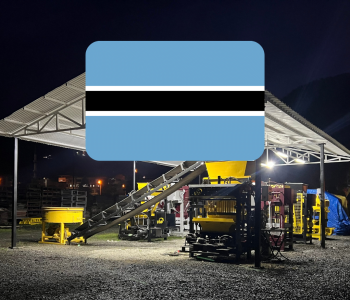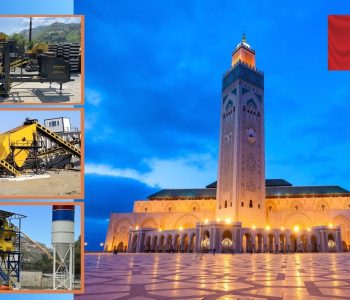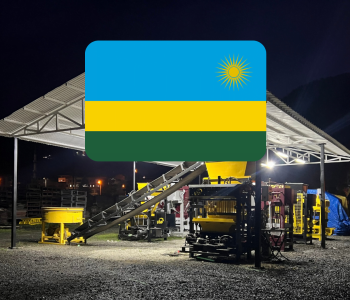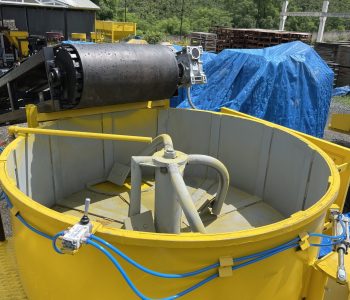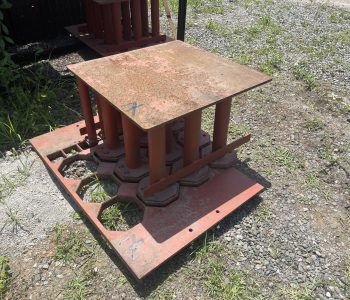Construction Machinery Prices in Lusaka: Insights and Analysis
City Overview: Historical Background, Present Conditions, and Future Prospects
Lusaka, the capital and largest city of Zambia, has evolved significantly from its early 20th-century origins as a small administrative center to become Zambia’s primary political and economic hub. The city has witnessed rapid urbanization and development, driven by its role in Zambia’s economic and infrastructural advancement. Today, Lusaka is focused on modernizing its infrastructure, improving transportation networks, and adopting sustainable development practices to support its growing population and economy.
Market Trends in Lusaka
Lusaka’s construction market is experiencing notable trends that reflect the city’s growth and development needs:
- Urban Expansion: As Lusaka continues to expand, there is a growing demand for residential, commercial, and mixed-use developments. This expansion is driving the need for various types of construction machinery, including concrete block machines and batching plants.
- Infrastructure Development: The city’s efforts to improve its infrastructure are creating opportunities for both large-scale and small-scale construction projects. The focus on upgrading roads, bridges, and public facilities is boosting the demand for construction machinery.
- Sustainability and Green Building: There is an increasing emphasis on sustainable and eco-friendly construction practices. This trend is influencing the types of machinery and materials used, with a growing interest in technologies that reduce environmental impact.
- Technological Advancements: The construction sector in Lusaka is gradually adopting advanced technologies, such as automated concrete block machines and sophisticated batching plants. These innovations are enhancing efficiency and quality in construction projects.
- Investment in Housing: With a rising population and increased urbanization, there is significant investment in residential housing projects. This trend is driving the demand for concrete block machines and other construction equipment necessary for building new homes and apartment complexes.
Common Construction Machinery in Lusaka
The construction industry in Lusaka plays a crucial role in supporting the city’s growth. Key machinery commonly used includes:
- Concrete Block Machines: Essential for producing a variety of concrete blocks needed for construction and infrastructure projects.
- Concrete Paver Machines: Used for laying paving stones on roads, sidewalks, and other surfaces, enhancing urban and rural infrastructure.
- Concrete Batching Plants: Facilities that mix concrete components to ensure high-quality and consistent output.
- Crushers: Equipment used to break down large rocks into aggregates for construction purposes, available in both stationary and mobile formats.
Concrete Block Machines in Lusaka
Concrete block machines are integral to Lusaka’s construction sector. These machines produce different types of blocks, such as hollow, solid, and paver blocks. They utilize steel molds to shape the blocks and come in various sizes and capacities to meet specific project needs.
Description of Machines, Equipment, and Materials
In Lusaka, concrete block machines are designed for precision and efficiency. They use materials such as sand, aggregate, and cement to produce strong, high-quality blocks. The machines feature steel molds to ensure that the blocks maintain their shape and durability. Many modern machines incorporate automation to improve the production process.
Concrete Block Machine Prices in Lusaka
The cost of concrete block machines in Lusaka varies based on factors such as capacity, technology, and brand. Prices are influenced by the machine’s complexity, production efficiency, and any additional features or automation. Understanding these factors is essential for making informed purchasing decisions.
Concrete Batching Plants in Lusaka
Concrete batching plants are essential for producing large quantities of concrete with consistent quality. These facilities mix ingredients like cement, sand, aggregate, and water in precise proportions. In Lusaka, there are two primary types of batching plants:
- Mobile Concrete Batching Plants: Portable units that can be relocated between different construction sites, ideal for projects requiring flexibility and mobility.
- Stationary Concrete Batching Plants: Fixed installations with high production capacity, suitable for large-scale and long-term projects.
Difference Between Mobile and Stationary Concrete Batching Plants
Mobile batching plants offer flexibility and transportability, making them suitable for projects with varying locations. In contrast, stationary plants provide higher production capacity and efficiency, making them better suited for extensive projects that remain in one place.
Concrete Batching Plant Prices in Lusaka
Similar to concrete block machines, the prices of concrete batching plants in Lusaka are influenced by factors such as capacity, technology, and additional features. These factors impact overall costs and should be carefully considered when selecting the most appropriate plant for a project.
Crushers in Lusaka
Crushers are essential for breaking down large rocks into smaller, manageable sizes for various construction applications. They are crucial for producing aggregates used in construction projects.
- Mobile Crushers: Versatile and transportable, these units can be easily moved between different sites, making them ideal for projects requiring on-site processing and flexibility.
- Stationary Crushers: Fixed installations designed for high capacity and continuous processing, suitable for large-scale operations.
Difference Between Stationary and Mobile Crushers
The primary difference between stationary and mobile crushers lies in their mobility and application. Mobile crushers offer flexibility and can be relocated as needed, making them suitable for projects with changing locations. Stationary crushers are designed for high-capacity and continuous operations, making them better suited for large-scale projects where the equipment remains in one place.
Crusher Machine Types
- Cone Crushers: Used for secondary and tertiary crushing, cone crushers offer a high reduction ratio and are effective for handling hard and abrasive materials.
- Jaw Crushers: These primary crushers manage large pieces of material and are known for their durability and ability to handle tough materials.
- Impact Crushers: Utilize impact forces to break down materials, ideal for producing high-quality aggregates and finer materials.
- Vertical Shaft Impact Crushers (VSI): Known for producing fine aggregates and sand, VSI crushers use a high-speed rotor to impact materials.
Crusher Prices in Lusaka
The prices of crushers in Lusaka vary based on factors such as type, capacity, and technological features. Stationary crushers, with their higher capacity and fixed nature, may differ in pricing from mobile crushers, which offer greater flexibility. Efficiency, durability, and additional features significantly influence overall costs.
Conclusion
Lusaka’s development highlights the critical role of the construction sector in supporting the city’s growth and modernization. The ongoing market trends, including urban expansion, infrastructure development, and technological advancements, are shaping the demand for construction machinery. By understanding these trends and the factors influencing machinery prices, stakeholders can make informed decisions that contribute to Lusaka’s continued expansion and advancement.
